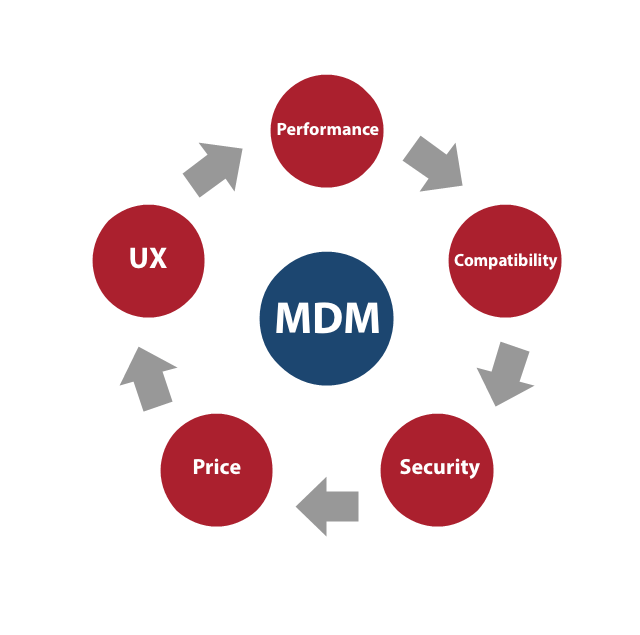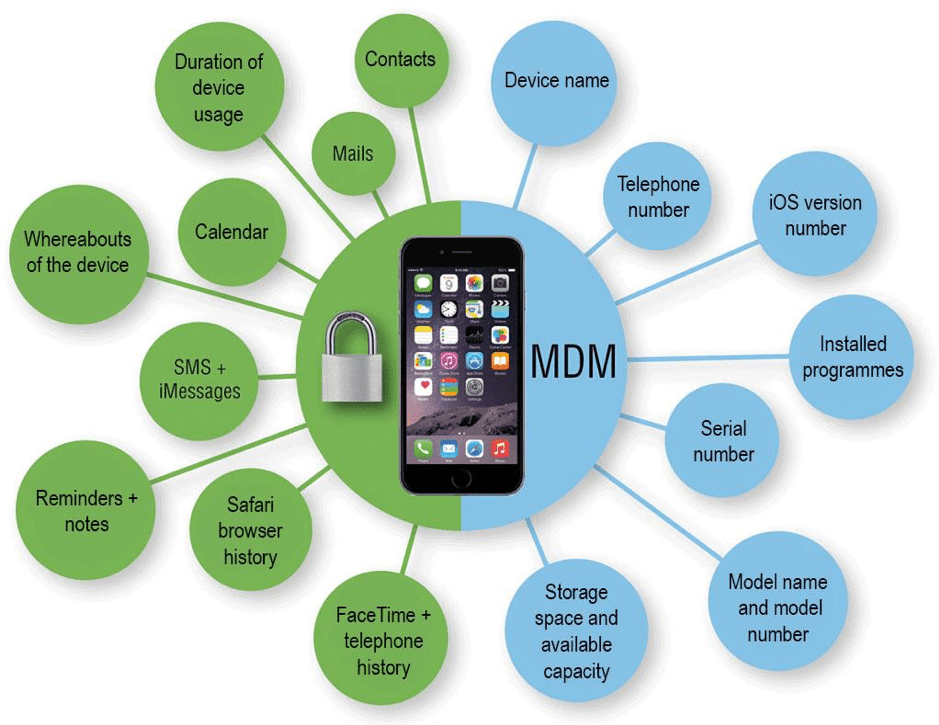MDM Comparison – How to choose the best MDM solution?

In today's mobile-first business environment, managing mobile devices has become crucial for organizations of all sizes.
Recent security reports show that 97% of organizations face mobile threats from many sources.
This makes mobile device management solutions very important for data security and operational efficiency.
This mobile device management comparison guide will help you understand MDM tools. This will help you choose the best solution for your needs.
Understanding Mobile Device Management Solutions
Mobile device management software serves as a centralized management tool that manages and secures corporate and personal devices used for business purposes. These MDM platforms enable IT administrators to control devices remotely, ensuring security and compliance across your mobile fleet.
Key Factors to Consider When You Compare MDM Solutions
1. Essential Features and Capabilities
When conducting your MDM solutions comparison, start by evaluating core features:
- App management capabilities for controlling application access and distribution
- Remote control features for remotely locking or wiping devices
- Device enrollment options that streamline onboarding
- Geolocation tracking for asset management
- Content sharing between devices
- Security measures implementation and monitoring
Different management sets offer varying levels of control, so it's crucial to compare mobile device management solutions based on your specific requirements.
2. BYOD Support and Containerization
With the rise of remote work, supporting device BYOD (Bring Your Own Device) policies has become essential. The best mobile device management for small business often includes containerization features that separate corporate and personal data. This approach allows you to maintain data security while respecting employee privacy on personal devices.
3. Deployment Options: Cloud vs On-Premise
While some organizations still prefer MDM on premise solutions, cloud-based deployments offer significant advantages:
- Enhanced flexibility and scalability
- Automatic updates and maintenance
- Lower infrastructure costs
- Improved accessibility for remote management
According to Gartner, 85% of enterprises are expected to move to cloud solutions by 2025, primarily for enforcing security and operational flexibility.
4. Compliance and Security Features
Compliance requirements vary by industry, making it essential to choose MDM platforms that support your specific needs. Look for solutions offering:
- Encryption capabilities
- Policy enforcement tools
- Audit trails and reporting
- Integration with existing security infrastructure
These security measures ensure your organization maintains compliance while protecting sensitive data.
5. User Experience and Support
When you compare mobile device management options, consider:
- Ease of use for both administrators and end-users
- Quality of technical support
- Availability of free trials and personalized demos
- Responsiveness to customer feedback and feature requests

Making the Right Choice: Platform-Specific Considerations
Android-Specific vs Multi-Platform Solutions
If your organization exclusively uses Android devices, a dedicated Android MDM solution might offer better value than multi-OS platforms. These specialized tools often provide:
- Deeper Android-specific features
- Lower costs compared to multi-platform solutions
- Simpler administration interfaces
- Faster implementation of Android-specific updates
Small Business vs Enterprise Needs
The best mobile device management for small business typically prioritizes:
- Cost-effectiveness
- Ease of deployment
- Essential security features
- Minimal IT overhead
Enterprise solutions, conversely, focus on:
- Advanced compliance requirements
- Extensive customization options
- Integration with complex IT ecosystems
- Scalability for thousands of devices
Implementation Best Practices
1. Start with a Free Trial
Before committing to any solution, take advantage of free trials to:
- Test core features in your environment
- Evaluate user interface and experience
- Assess technical support quality
- Verify compatibility with existing systems
2. Define Clear Requirements
Create a comprehensive list of must-have features for managing mobile devices in your organization:
- Number and types of devices
- Security requirements
- Compliance needs
- Budget constraints
- IT team capabilities
3. Consider Future Growth
Choose mobile device management solutions that can scale with your business:
- Flexible licensing models
- Support for emerging device types
- Regular feature updates
- Strong vendor roadmap
Common MDM Features Comparison
When evaluating MDM tools, consider this comparison framework:

Conclusion
Selecting the right mobile device management software requires careful evaluation of your organization's specific needs, budget, and growth plans.
By conducting a thorough mobile device management solutions comparison, you can identify the platform that best balances security and compliance requirements with user experience and operational efficiency.
The best MDM solution fits your current needs. It can also adjust to future challenges in mobile security and device management.
Try out different options. Talk to vendors for personalized demos. Make sure the solution you pick can grow with your organization's changing mobile strategy.
Whether you run a small business or a large enterprise, the right MDM solution is key. It helps you use mobile technology safely and efficiently. This solution also enforces security policies to protect your important data.
